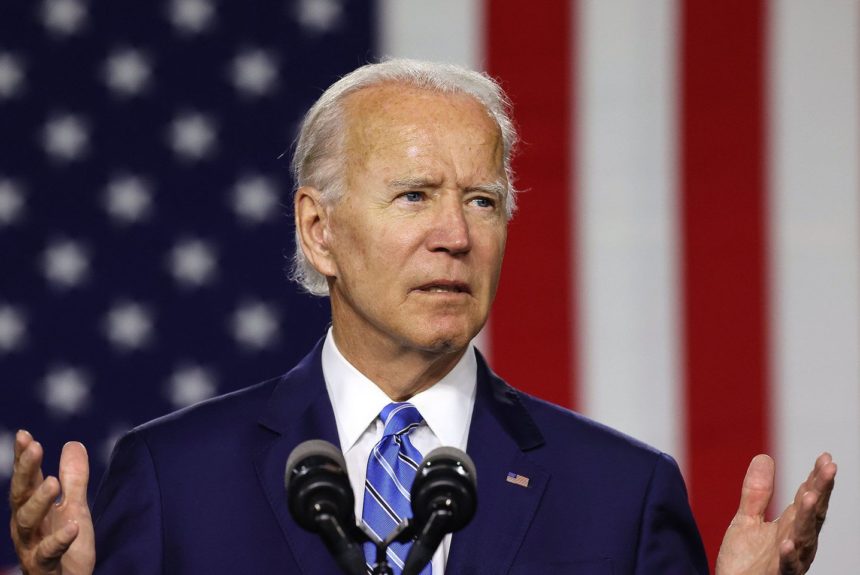By Frank Maisano
In the final days of the campaign, energy was a big-ticket item. It emerged a controversial issue in the last Presidential debate when former Vice President and current Democratic candidate Joe Biden said he would transition us away from the oil industry. Given the importance of the issue to key battleground states, talking heads on post-debate analysis shows thought it was a minor gaffe.
While Biden still managed to eke out a win in the Keystone State, the attacks from Trump and the excellent performance from Republicans statewide highlight cracks in the Biden Coalition as he now assumes the mantle of governing. And the lack of a blue wave that allowed Republicans to pick up seats in the House and likely maintain control of the Senate (pending the outcome of two Georgia runoffs where they have a slight edge) will further create need to develop consensus policy.
The mixed results show what we already knew: Biden’s energy transition must be fueled by new union jobs, and the balance underscores what will be a major challenge for Democrats now that he has been elected president.
And it hasn’t taken long. As soon as Biden was called the winner, a major tug-of-war began between progressives, who are taking credit for his victory, and the independents and moderate union Democrats, who are largely responsible for it. It was exemplified in the recent media exchange between Rep. Abigail Spanberger, a moderate Democrat who barely survived, challenging progressives for forcing the party left, and Alexandria Ocasio-Cortez, saying that the party needed to be even more progressive. Game On!!!
This intrasquad skirmish will play out on a number of policy issues, but none more important than energy and climate change.
Progressives, who have advocated for a Green New Deal, want to push Biden toward more aggressive policy solutions that cannot achieve a bipartisan consensus. This is where Republicans and industry must stand up and support unions and moderates to make a better policy that will achieve more rational goals, protect jobs and the economy and keep our energy system reliable.
We know there will be significant momentum to do something on climate change and energy issues. But with more conservative courts up and down the system less likely to give Biden regulatory efforts leeway, the policy train will be forced back into Congress – where it always has belonged.
Biden’s first move is easy and likely to appease very few. Since we officially left the Paris agreement the day after the election, it will take little political capital for Biden to re-enter us into the process, one we should have never left all along.
Early in the Trump administration, many Republicans and industry and business groups, conservative North Dakota Senator Kevin Cramer among them, urged the president to stay in Paris to engage the international community on climate change issues and remain at the table in any future negotiations.
Clearly, leaving Paris only made the US more of a pariah in the eyes of most of the international community, one that rejected science and wasn’t interested in moving forward on any kind of solution to a major challenge the world faced. While that may have been the Trump doctrine, Republicans across-the-board all felt this was a policy that was disastrous on its face.
On other climate issues, Democrats will face a choice in the first two years of a Biden presidency. The nation remains a center-right country that is opposed to taxes on energy and forced consumer behavior changes. And naturally, if they’re perceived as having to face those issues, generally they politically reject those forcing them into it.
This is where real leadership must play a role. Union leaders and moderate Democrats across the country will need to stand up and push back on progressives who will be asking for the moon on climate and energy issues.
The mixed election results show that Republicans must remain leaders by promoting clean energy values of innovation, technology advancement and fair solutions that protect our economy and the jobs that have kept it strong since the last recession in 2008. Single-handedly, the Shale Revolution has driven job growth in states across the country.
Now that the shouting is over, it is time to come together. The voters have offered a mixed bag in favor of Biden and Congressional Republicans. A quick read of the tea leaves tells us it is time to get down to the hard work of building a policy that can bring people together, protect our economic recovery and succeed at reducing emissions.
Frank Maisano is Senior Principal at Bracewell.
The views and opinions expressed are those of the author’s and do not necessarily reflect the official policy or position of C3.
